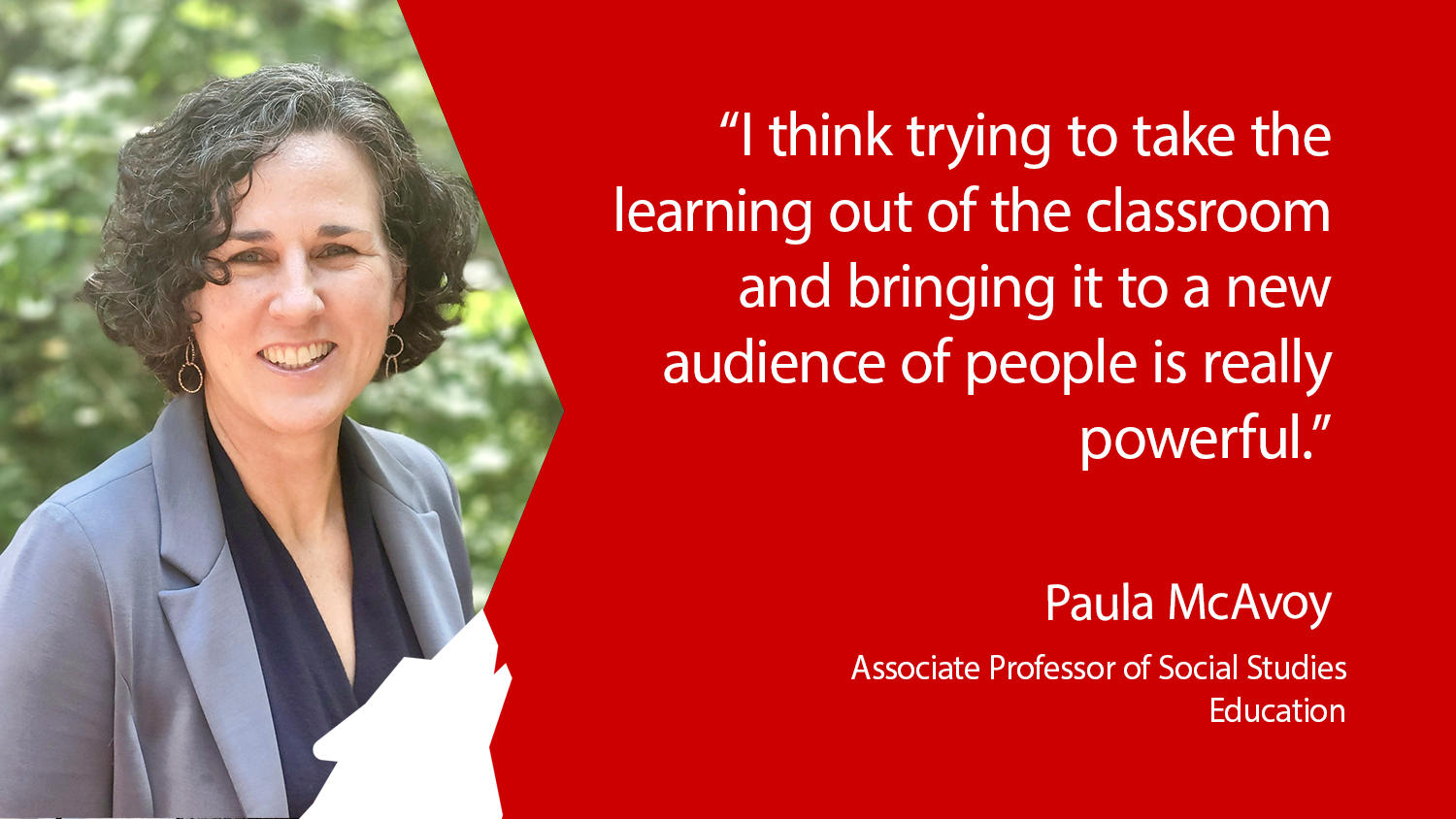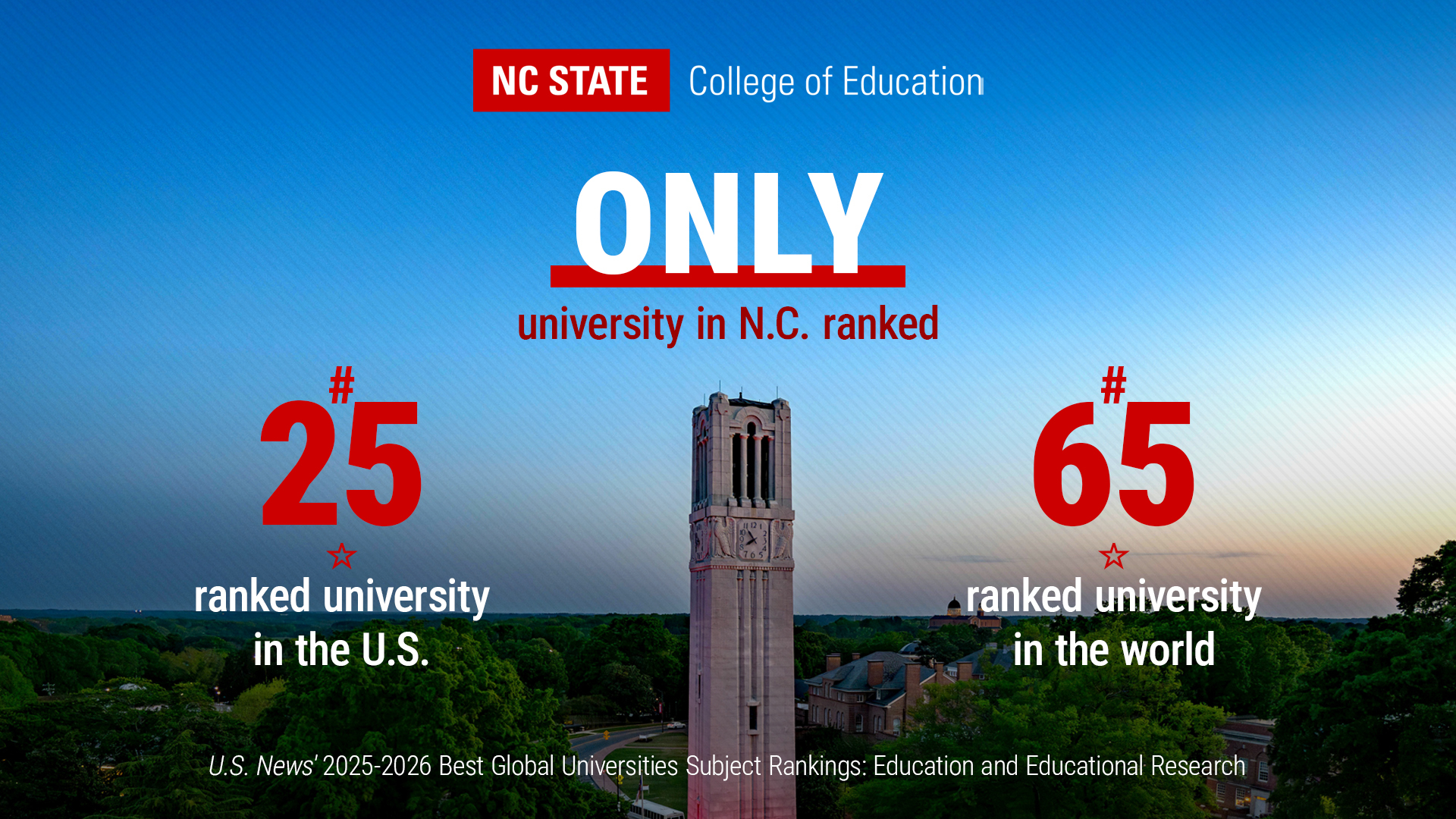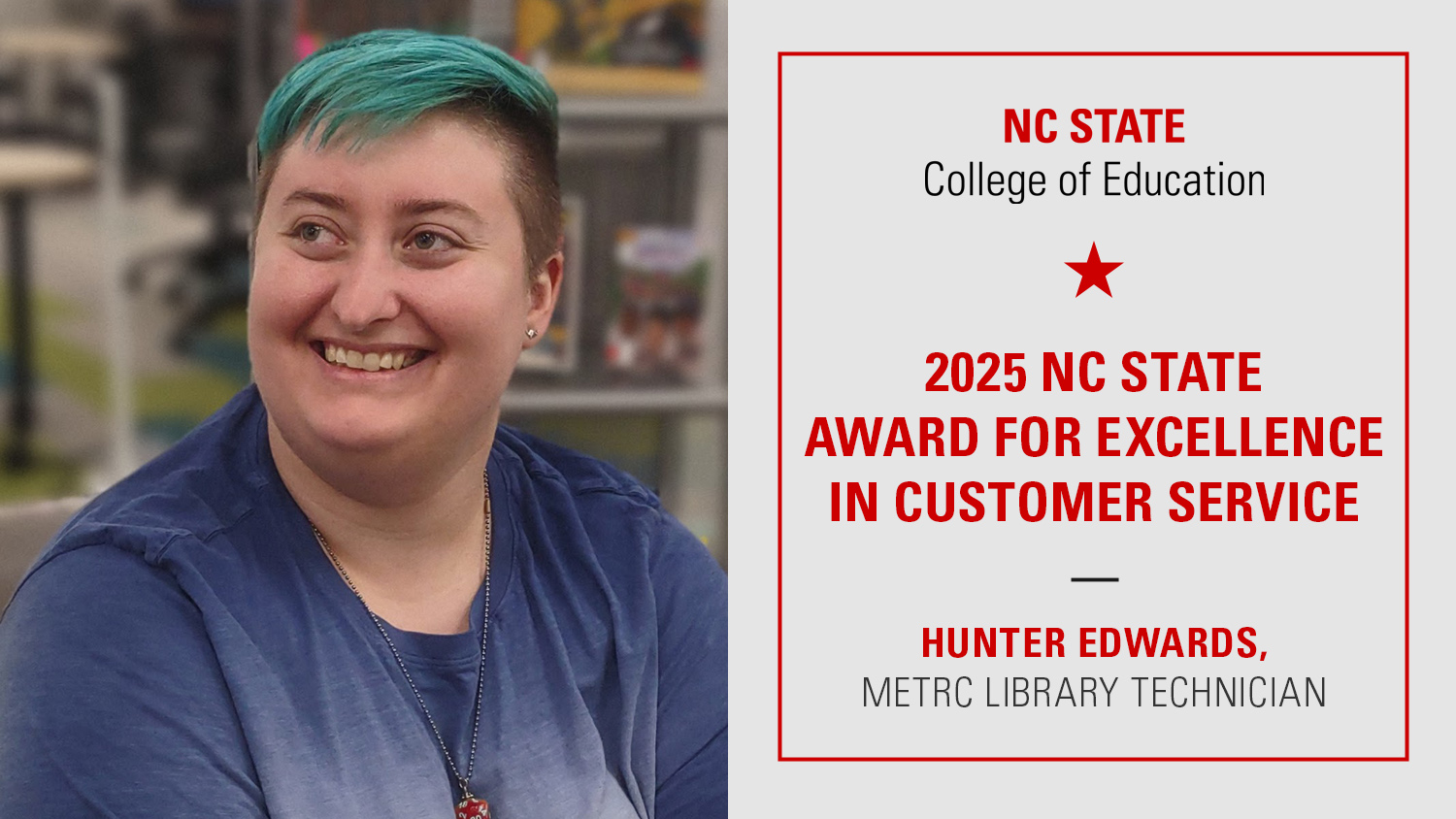Associate Professor Paula McAvoy Receives NC State’s 2022-23 Outstanding Teacher Award

For NC State College of Education Associate Professor Paula McAvoy, teaching has always been creative work.
As a former high school teacher and current teacher educator, she often spends days thinking about her lessons before they happen and continually reflects on ways to improve those lessons, even if they’ve gone well.
Now, her creativity and commitment to improvement has been recognized with NC State University’s 2022-23 Outstanding Teacher Award, which recognizes creative and innovative teaching and learning practices.
“It’s very exciting, and it’s an honor,” McAvoy said. “I do put a lot of time and effort into teaching, so it feels nice to be seen.”
As a high school social studies teacher for 10 years, McAvoy always took her teaching practices beyond the traditional lecture. With a background in international relations, she drew on her undergraduate degree to teach in an interdisciplinary way, bringing in aspects of psychology, anthropology and sociology to build a lesson around ideas and questions rather than just content.
“I think I became a teacher, in part, because I love engaging with ideas and those moments in the classroom where you can get a student, of any age, to think ‘I have never thought of it that way before,’” she said. “Ideally, you want people to leave your classroom with a new understanding of the world.”
Teaching in an alternative high school program in California that targeted students who were disengaged from the traditional high school experience, McAvoy wanted to learn more about why these students were becoming disinterested and how the educational experience could be improved. This ultimately led to her earning a doctoral degree and pursuing a career as a teacher educator.
McAvoy teaches classes largely online as part of the College of Education’s Master of Arts in Teaching program. Students who nominated McAvoy said they appreciated her efforts to make lessons engaging and build community in both synchronous and asynchronous classes.
For asynchronous classes, McAvoy said she designs the coursework around an inquiry model, so that students feel as though they are all collectively working together throughout the semester. For synchronous classes, she designs the course around a discussion model and plans opportunities for students to meet and work together face-to-face when possible.
This year, for example, she held a Saturday event where students from two classes could come together for a professional development workshop where classroom discussion strategies were modeled so future educators could better understand how to use them in the classroom. She also co-hosts the annual Dining with Democracy event, in which students serve as facilitators.
“I think trying to take the learning out of the classroom and bringing it to a new audience of people is really powerful, especially with engaging students in political discussions,” McAvoy said. “I’m trying to break down all these preconceived notions that teachers can’t do these things, so I hope that translates and carries with them when they go into their own classrooms.”
- Categories:


